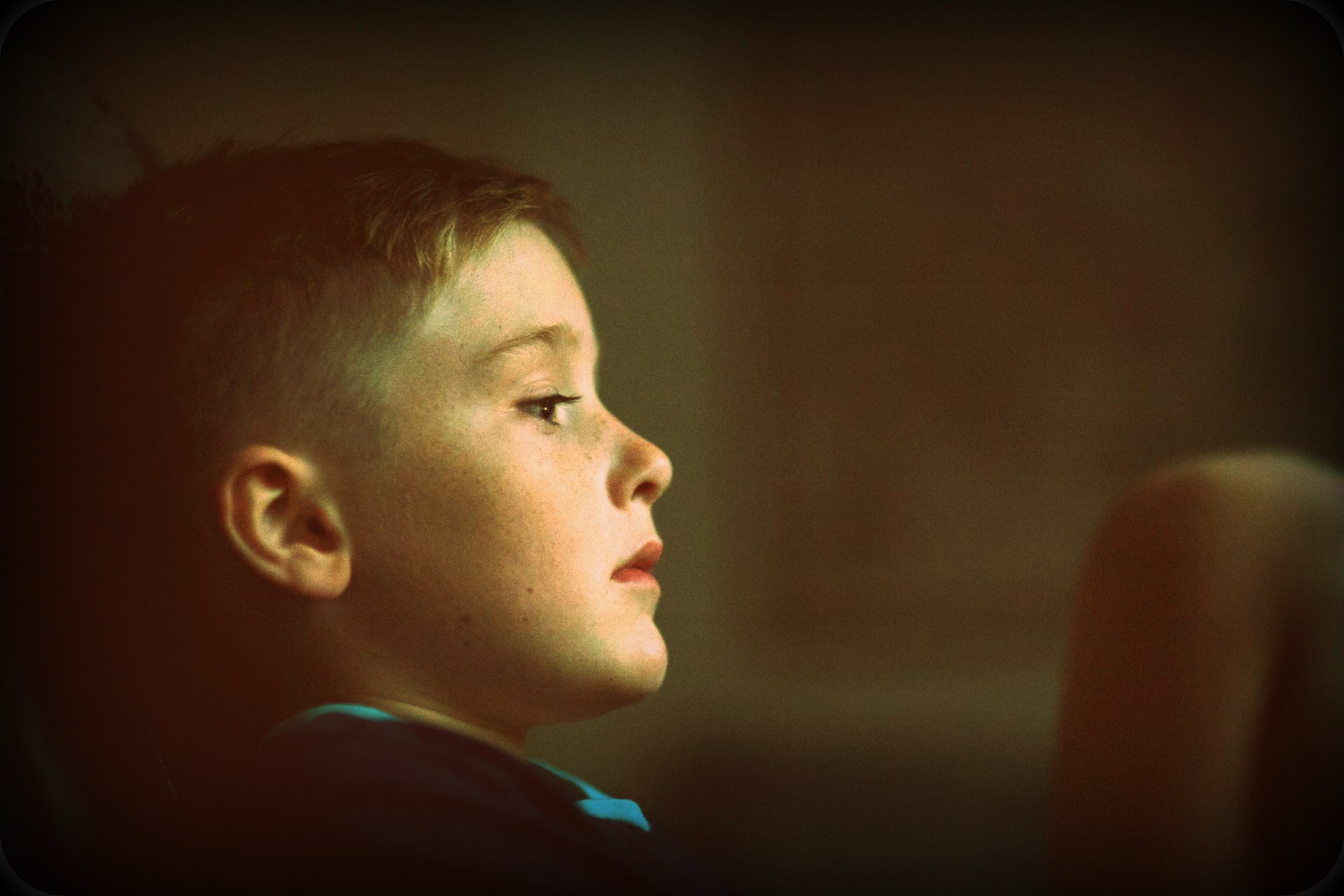The Impact of Divorce on Children: How to Support Your Kids
Divorce is a major life event that not only affects the separating couple but also has a profound impact on their children. When parents decide to divorce, a child’s world may seem completely turned upside down. As a parent, one of your biggest priorities during a divorce is likely to ensure that your children continue to thrive.
While it is true that parental divorce is challenging for children of any age to handle, the good news is that you can make sure your children feel supported at this time. This article will identify some of the emotions children may be feeling during this challenging process and how parents can support them through the transition.
Brown Family Law is here to offer divorce advice and support if you are going through a divorce. Contact us at 801-685-9999 or complete our online form to schedule a consultation.
How Divorce Affects Children Emotionally
The way parental divorce impacts children emotionally can vary depending on factors like their age, their personality, and whether it is a high-conflict situation.
Consider the following listed below. Understanding such emotional responses is essential for parents who want to support their children through this difficult time.
Anxiety
Children may feel anxious during a divorce. This is especially true if they are unsure of what the future holds. Stress and anxiety can manifest in various ways, including trouble sleeping, changes in appetite, or irritability.
If you notice signs of anxiety in your children, one way to support them is by letting them know what to expect and establishing a consistent routine. For example, your kids may be worried about where they will live. It may be helpful to post a calendar on the wall that will show them where they will be each day.
Guilt
Children often don’t understand why a divorce is happening in their family. It is common for children, especially younger kids, to worry they did something to cause their parents to divorce.
If left unaddressed, feelings of guilt and self-blame can affect a child’s emotional well-being and self-worth. Guilt over parental divorce can even lead to depression, stress, and physical health problems.
Anger
Children may be angry about the divorce, frustrated that their whole world is changing. They may feel overwhelmed that they have little control over the situation.
Children affected by divorce may display outward anger towards their parents, siblings, classmates, or others. Other times, a child’s anger may be directed inward, leading to issues like self-esteem problems or withdrawal from others.
Sadness
Feelings of sadness are common in children whose parents divorce. A divorce often involves a sense of loss, not only for the relationship between the parents but also for the family unit as it once was. Children may mourn the loss of their family as they knew it, showing sadness and grief.
In some situations, this sadness can lead to depression. This is especially true if the child struggles to process his or her emotions or does not receive adequate support.
Fear of abandonment
A child may feel abandoned by one or both parents following the end of a marriage. This fear can be heightened if one parent is less involved in the child’s life after the divorce.
Children may also have a stronger fear of abandonment if they have to adjust to significant changes, such as moving homes or changing schools.
Be Alert to Warning Signs Your Child Struggling After a Divorce
While some children adjust well to a divorce, others may struggle with the changes in their family dynamics. As a parent, it is essential to be aware of the signs that could indicate your child is having a hard time coping with the divorce.
Early recognition of these signs can help you take the necessary steps to support your child through this challenging period.
Changes in behavior
One of the most common indications of a child struggling following a divorce is a noticeable change in behavior.
In younger kids, behavioral problems such as temper tantrums or unreasonableness may show your child is having difficulty coping with the situation. For older children, the behavioral change may come in the form of strong emotional outbursts such as screaming.
Behavioral changes are often a way for children to express their confusion, anger, or sadness.
Changes in eating patterns
The emotional toll a divorce is having on your child can sometimes be seen through his or her eating habits.
Signs your child may have eating issues include:
- Dramatic changes in weight
- Overconsumption of food
- Food avoidance / minimal food consumption
- Going to the bathroom right after eating
- Not wanting to eat in front of others
- Dramatic changes in weight
If you notice changes in your child’s eating patterns, you may want to consult a healthcare professional. A doctor can help you determine the next steps for your child’s physical and mental health.
Regressive behaviors
Children who are part of divorced families may revert to behaviors they had outgrown, such as:
- Bedwetting
- Clinginess
- Thumb-sucking
- Needing a security blanket
- Temper tantrums
If you notice regressive behaviors in your child, these may indicate that he or she is stressed and not coping well with the transition. These behavioral changes can be a way for children to seek comfort and regain a sense of control during a time of uncertainty.
Issues with sleeping
Adjusting to changes in routines and new living arrangements can result in children experiencing sleep problems.
Sleep issues in children may include:
- Difficulty falling asleep
- Refusing to go to bed
- Frequent nightmares
- Waking up during the night
- Trouble waking up in the morning
If your child divides his or her time between sleeping at your home and your ex-partner’s home, it is important for both parents to establish the same bedtime routine – especially for younger children. This helps prevent the child from experiencing conflicting sleep patterns.
Withdrawal or loss of interest in activities
Children may react to stressful situations such as a divorce by withdrawing from family or friends. They may lose interest in hobbies, sports, or other activities they once enjoyed.
In more severe situations, social withdrawal or a loss of interest in activities can be a sign of depression.
Be alert to other signs of depression as well, including:
- Changes of energy
- Difficulty concentrating
- Feelings of worthlessness
- Destructive behaviors
If you think your child is suffering from depression, you may want to reach out to a mental health professional for help.
Difficulty at school
Research shows that divorce is linked to an increased risk of academic issues such as lower grades or dropping out of school. The emotional stress of a divorce can impact a child’s ability to concentrate on school work.
If your child’s grades have declined or he or she begins to display a lack of interest in academic activities, asking your children how they are feeling can sometimes be beneficial. Additionally, reaching out to your child’s school counselor for advice may be helpful.
Excessive worry
Children who are having a difficult time with their parents breaking up may exhibit excessive worry or fear about the future.
A child may express concerns such as:
- Where will I stay?
- Will I be left alone?
- Where will my stuff be?
- When will I see mom/dad?
- Will our family ever be “normal” again?
- Do you still love me?
Parents can help alleviate some of this worry by assuring the children they are loved. Try to remain positive or at least neutral about the children’s relationship with the other parent.
Helping Your Children Cope Throughout the Divorce Process
As you navigate the emotional and logistical complexities of ending your marriage, it is essential to prioritize your children’s well-being.
Consider some ways divorced parents can help their kids cope during this difficult time:
- Maintain honest communication. Parents should explain the situation in age-appropriate terms, reassure their children that they are loved, and answer any questions they might have. Avoid blaming the other parent; instead, focus on how the family structure will change and what the future may look like.
- Provide emotional support. Most children will need reassurance that they are not to blame for their parent’s separation and that both parents still love them. Continuously express your love and support. Encourage your children to talk about their emotions and let them know it’s okay to feel sad or angry.
- Avoid parent conflict. Minimize marital conflict in front of your children. Arguments between parents can be distressing and confusing for kids. Speak positively about the other parent and try to create a united front. Allow your child to express his or her difficult emotions and feelings about the divorce without fear of taking sides.
- Establish a sense of security. One of the biggest challenges for many children during divorce is coping with the changes in their home life. Try to maintain a sense of stability and routine. Staying consistent with schedules such as school, extracurricular activities, and bedtime can help kids feel more secure.
- Be patient. Adjusting to the new family arrangement takes time. Be patient with your children as they process the changes in their life. Understand that their emotions may fluctuate, and they may not always express their feelings in a way that makes sense to you.
- Seek professional help if needed. If you notice that your child is having an especially hard time coping with the divorce, it may be beneficial to seek professional help from a clinical psychologist. Mental health professionals can provide your children with a safe space to express their feelings and offer strategies to manage their emotions.
The Divorce Lawyers at Brown Family Law Are Here to Help
By understanding the emotional and psychological impact of divorce on children and taking steps to support them, you can help your children navigate this difficult transition. While divorce is a significant change in your children’s lives, with the right support, your kids can get through the experience feeling loved, secure, and happy.
Obviously, your role as a supportive and loving parent to your children is more needed than ever during this time.
If you and your spouse are concerned about how your split-up might affect your children, consulting a family law attorney can provide you with guidance on how to protect your children during the divorce process.
The experienced and compassionate divorce attorneys at Brown Family Law are here to help. Call us 24/7 at (801) 685-9999 to schedule a consultation with a member of our legal team.











